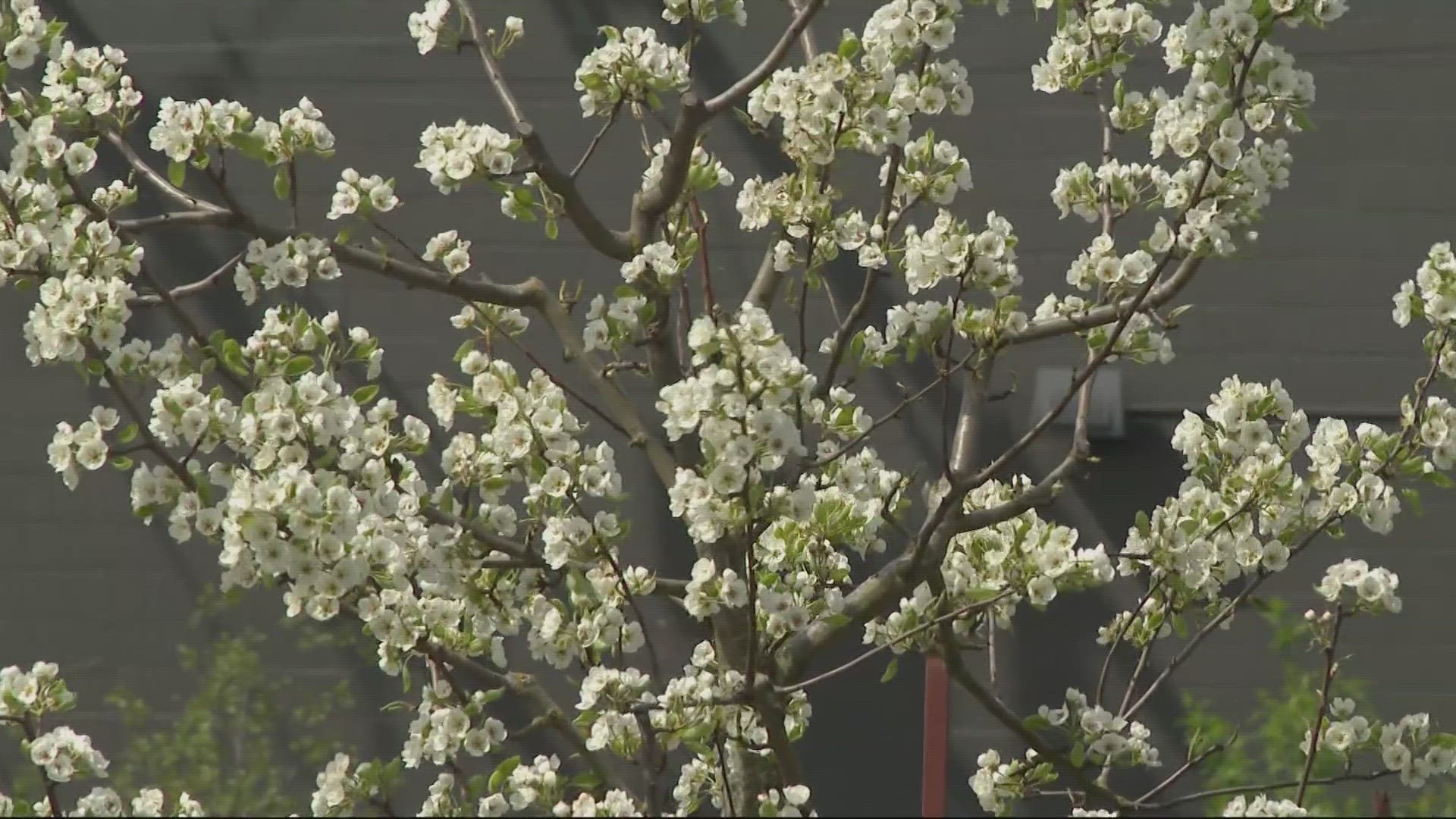PORTLAND, Ore. —
Off the bustling corner of Northeast 125th Avenue and Halsey, an oasis hides in plain sight. Tucked behind the Parkrose Community United Church of Christ, lies an orchard brimming with flowering plum, pear, apple, cherry and quince trees.
It’s run by the Portland Fruit Tree Project.
“There are approximately 60 trees here, as well as some shrubs, and then a native understory,” said Heather Keisler Fornes, executive director of the organization. “We come into this space to do the pruning and to do the harvesting and to bring in workforce trainees.”
The Portland Fruit Tree Project is one of dozens of nonprofits around the state that have partnered with Earth Day Oregon, which connects the organizations with businesses that help support them. In the fruit tree project’s case, they partnered with RadPop PDX, Freeya, Por Que No, and fittingly — 2 Towns Ciderhouse.
The organization runs another community orchard in North Portland, which provides tree care services to residents and harvest assistance for those who grow more fruit than they need.
The project is attempting to tackle multiple problems at once.
Trees provide shade and clean air, both of which have been historically lacking in parts of east Portland. The area also has fewer food options than other wealthier parts of the city.
“This area, in addition to being low canopy, there aren't a lot of grocery stores out here, and there's not a lot of options for where to get healthy foods,” Keisler Fornes said.
Since the project began in 2006, they’ve harvested nearly half a million pounds of fruit.
In addition to all the plums, pears and cherries growing in their community orchards, Keisler said they take special care to plant fruits that might be hard to find in local grocery stores.
“We really work hard to find trees that will thrive in this environment, but that are also culturally responsive,” she said. “Like loquats, jujubes, persimmons and things that you don't necessarily find when you go to Safeway to get your groceries.”
For Keisler Fornes, though the fruit tree project provides a bright spot in the environmental movement, which can at times seem like nothing but doom and gloom.
“The environmental movement is depressing," she said. “I remember my first class of environmental studies in college. The professor said ‘You're going to have to deal with depression. This is really sad.’ And I thought, does it have to be, though?”
Fornes recognizes that the world in general, and Portland specifically, is facing significant environmental challenges. From climate change to plastic pollution, to the proliferation of toxic chemicals, there’s no shortage of things to worry about.
But that’s what makes the Fruit Tree Project all the more important.
“We can bring joy while we're trying to fight big scary things. We have to — or else we're not going to make it,” Fornes said, looking around the community orchard. “You cannot be in this space and not be happy. You can't eat fruit and not be happy. It just brings a lot of joy.”

